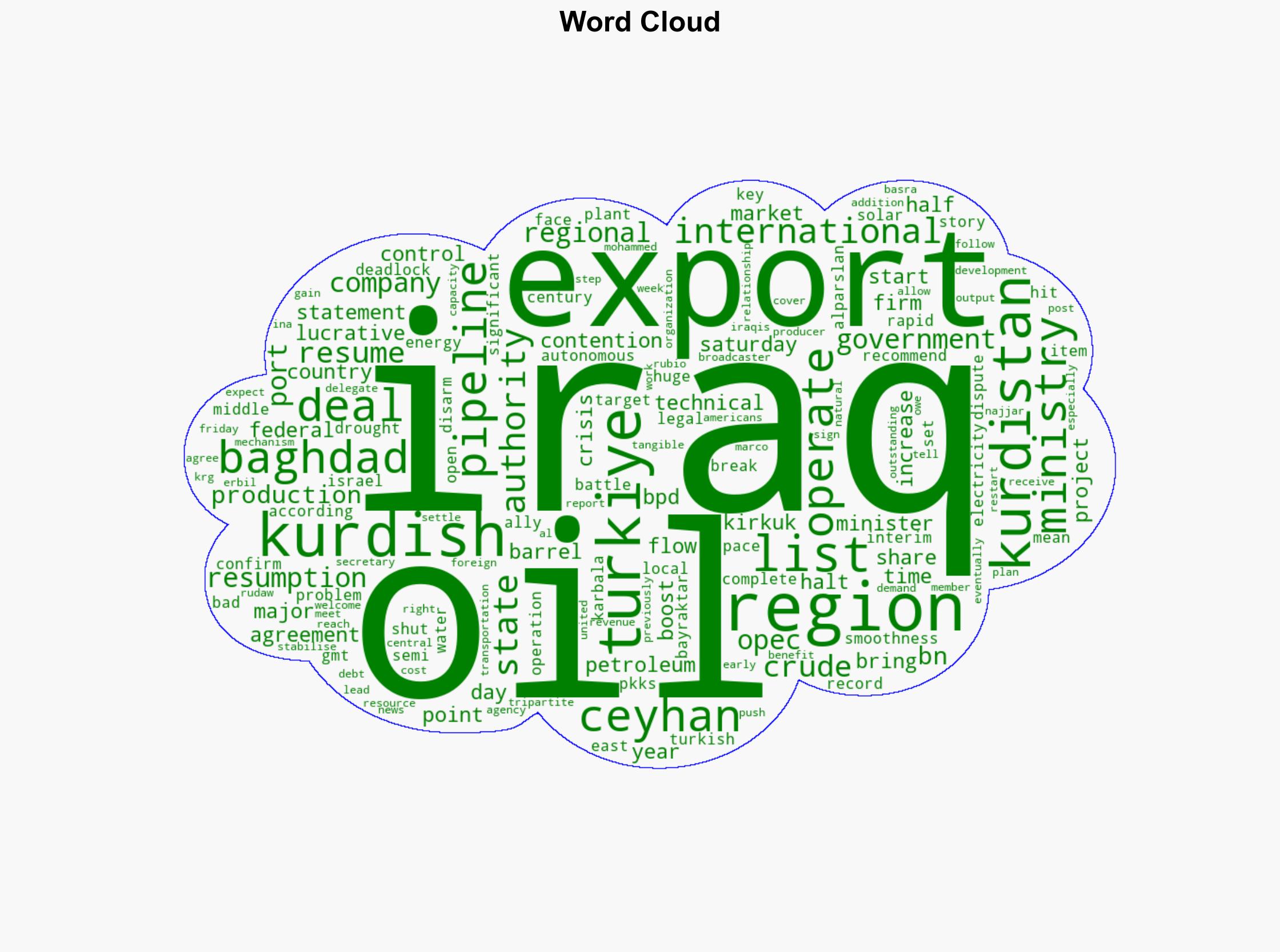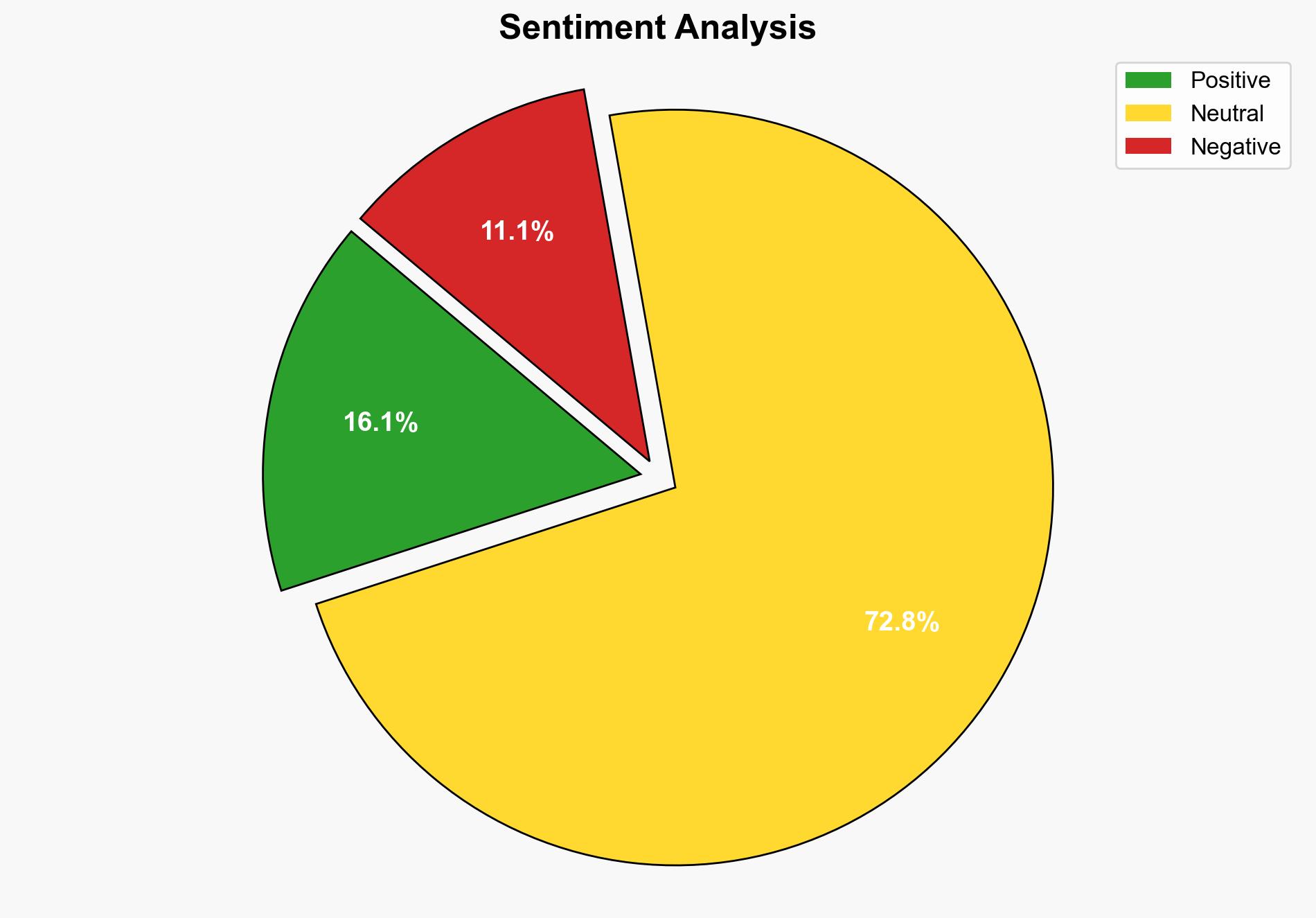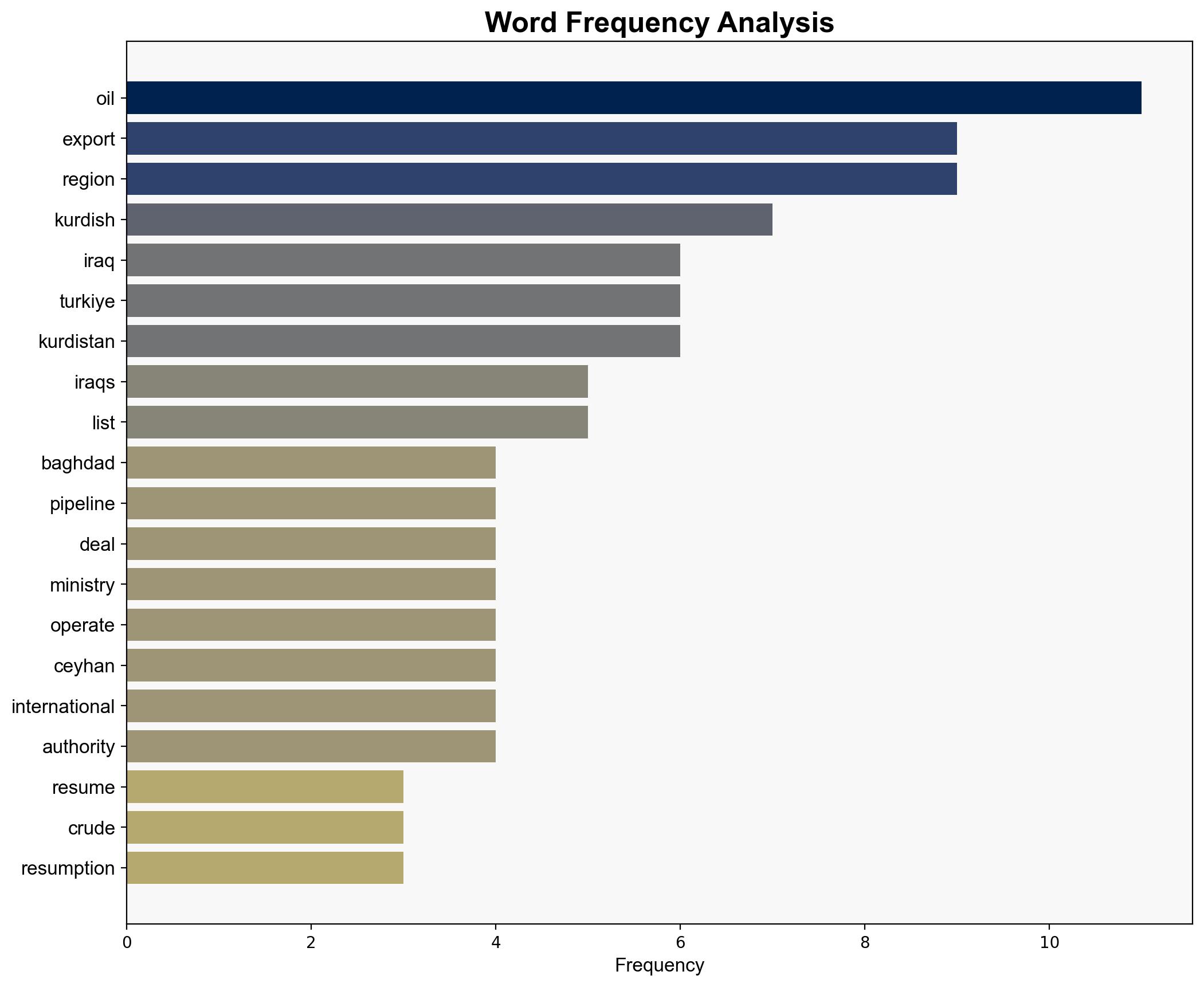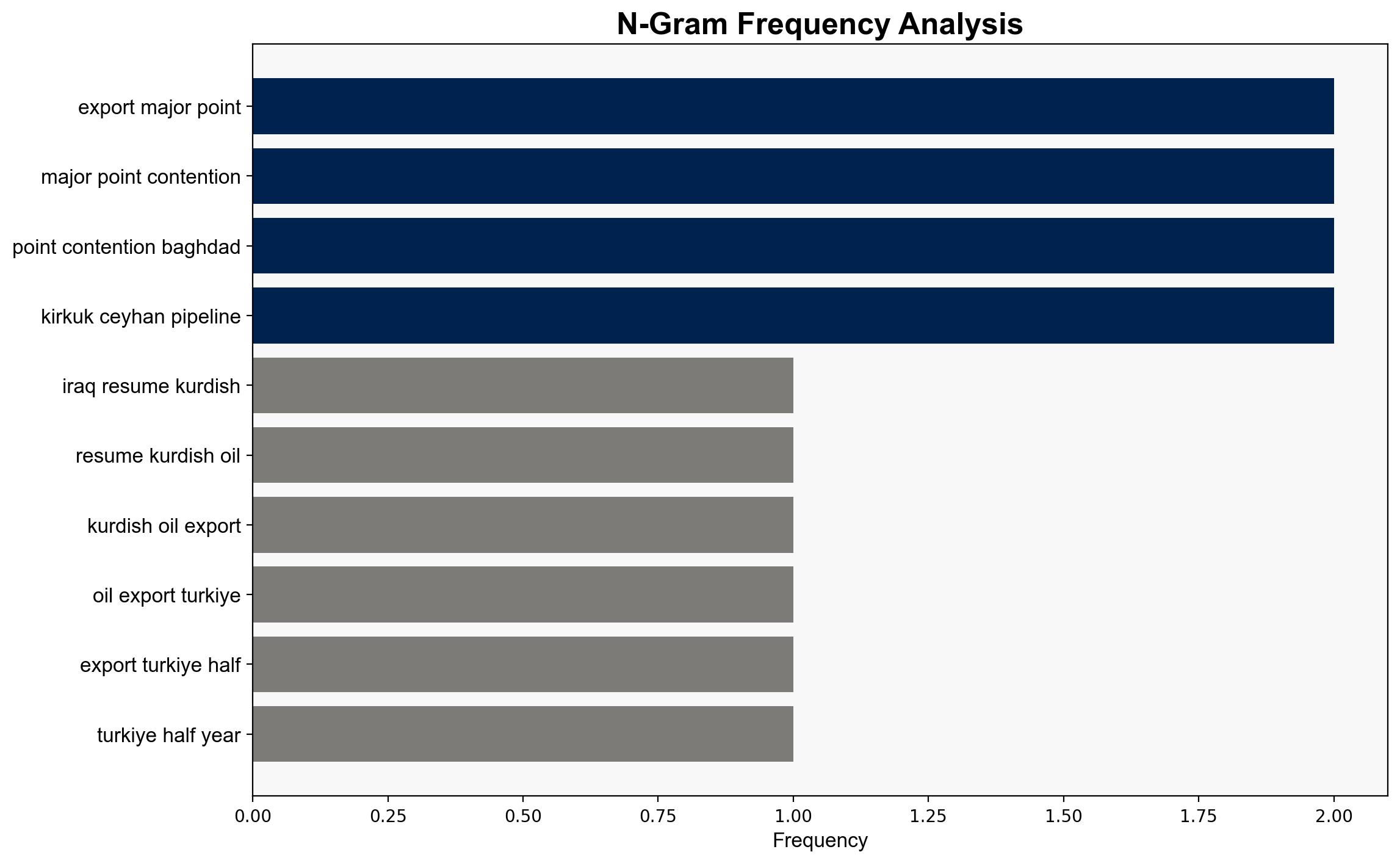Iraq resumes Kurdish oil exports to Turkiye after two-and-a-half-year halt – Al Jazeera English
Published on: 2025-09-27
Intelligence Report: Iraq resumes Kurdish oil exports to Turkiye after two-and-a-half-year halt – Al Jazeera English
1. BLUF (Bottom Line Up Front)
The resumption of Kurdish oil exports from Iraq to Turkiye marks a significant development in regional energy dynamics, potentially stabilizing relations between Baghdad and the Kurdistan Regional Government (KRG). The most supported hypothesis suggests this move is a strategic alignment to enhance Iraq’s oil revenue and geopolitical influence. Confidence level: Moderate. Recommended action: Monitor compliance with the agreement and assess impacts on regional stability and oil market dynamics.
2. Competing Hypotheses
Hypothesis 1: The resumption is primarily driven by economic incentives to boost Iraq’s oil revenue and stabilize its economy. This hypothesis is supported by the need to increase production capacity and the involvement of international oil companies.
Hypothesis 2: The resumption is a geopolitical maneuver to strengthen Iraq’s regional influence and counterbalance Kurdish autonomy. This is supported by the historical contention between Baghdad and Erbil over oil control and the strategic timing of the agreement amid regional tensions.
3. Key Assumptions and Red Flags
Key Assumptions:
– The agreement will be implemented without significant technical or political disruptions.
– International oil companies will comply with the new operational framework.
Red Flags:
– Potential non-compliance by either party due to historical mistrust.
– Unforeseen technical issues that could disrupt oil flow.
– Regional geopolitical shifts that may impact the agreement’s stability.
4. Implications and Strategic Risks
The resumption of oil exports could stabilize Iraq’s economy and improve relations with the KRG, reducing internal tensions. However, it may also provoke regional actors who perceive this as a shift in power dynamics. The economic benefits could be undermined if technical or political challenges arise, potentially leading to renewed disputes.
5. Recommendations and Outlook
- Monitor the implementation of the agreement and assess compliance by both Iraq and the KRG.
- Engage with regional stakeholders to mitigate potential geopolitical tensions.
- Scenario Projections:
- Best Case: Smooth implementation leads to increased oil revenue and regional stability.
- Worst Case: Technical failures or political disputes disrupt exports, exacerbating regional tensions.
- Most Likely: Initial challenges are overcome, leading to gradual stabilization and economic benefit.
6. Key Individuals and Entities
– Alparslan Bayraktar
– Marco Rubio
– Mohammed Al Najjar
7. Thematic Tags
national security threats, regional focus, energy security, geopolitical strategy





